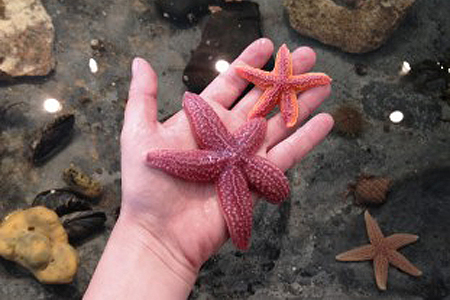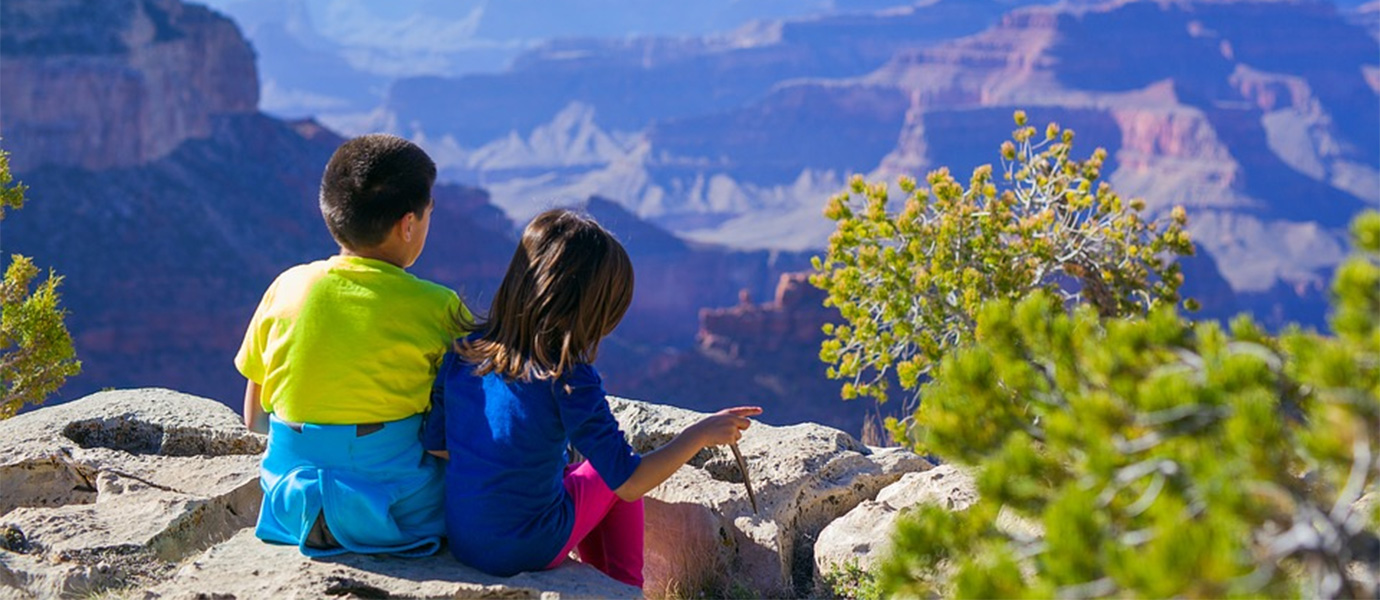
Dorr Museum
Museum staff and students lead a variety of programs and activities encouraging everyone to participate in natural history learning. Programs include guided museum visits with scavenger hunts, time at the indoor tide pool, and more; nature exploration that uses observational skills for activities along the shoreline and other natural settings; and a popular program in which participants assemble the skeleton of a 17-foot minke whale. Study skins, small exhibits, bones and other natural history objects can be loaned for use in the classroom. Programs are available September - October, January - March, and April - May.
supports classroom learning in:
Environmental Studies, Science.
topics covered:
Animals, Archaeology, Biology, Classification, Ecology, Environmental Science, Hiking, Marine Life, Science.
contact info
Name: Carrie Graham, Museum Manager.
Phone: 207-288-5395
Email: [email protected]
INFO
ABOUT
Dorr Museum
The George B. Dorr Museum of Natural History investigates, interprets, and displays the natural world of Maine. Features of the Museum are dioramas of coastal Maine wildlife and a tide pool tank housing a variety of live sea stars, hermit crabs, snails and other marine creatures. Visitors of all ages can touch, smell, listen and create while learning about the natural history of Maine. All exhibits are designed and produced by students at College of the Atlantic.
contact info
Hrs: Tuesday - Saturday 10AM - 5PM.
HELPFUL LESSON PLAN(S)
Prepared by FieldTripDirectory.com
Nature Exploration Lesson Plan
FUN FACTS
One single tree can provide the oxygen required for two human beings and over 8,000 sheets of paper. Trees can also clean the soil and air by absorbing harmful pollutants. So what have you done for a tree lately? Nature centers and state parks provide a hands-on environment to discover facts about native plants and animals, as well as ways to preserve these natural resources.
View Lesson Plan>>
Dorr Museum
Museum staff and students lead a variety of programs and activities encouraging everyone to participate in natural history learning. Programs include guided museum visits with scavenger hunts, time at the indoor tide pool, and more; nature exploration that uses observational skills for activities along the shoreline and other natural settings; and a popular program in which participants assemble the skeleton of a 17-foot minke whale. Study skins, small exhibits, bones and other natural history objects can be loaned for use in the classroom. Programs are available September - October, January - March, and April - May.
supports scout badges in:
Environmental Science, Science.
topics covered:
Animals, Archaeology, Biology, Classification, Ecology, Environmental Science, Hiking, Marine Life, Science.
contact info
Name: Carrie Graham, Museum Manager.
Phone: 207-288-5395
Email: [email protected]
INFO
ABOUT
Dorr Museum
The George B. Dorr Museum of Natural History investigates, interprets, and displays the natural world of Maine. Features of the Museum are dioramas of coastal Maine wildlife and a tide pool tank housing a variety of live sea stars, hermit crabs, snails and other marine creatures. Visitors of all ages can touch, smell, listen and create while learning about the natural history of Maine. All exhibits are designed and produced by students at College of the Atlantic.
contact info
Hrs: Tuesday - Saturday 10AM - 5PM.
HELPFUL LESSON PLAN(S)
Prepared by FieldTripDirectory.com
Nature Exploration Lesson Plan
FUN FACTS
One single tree can provide the oxygen required for two human beings and over 8,000 sheets of paper. Trees can also clean the soil and air by absorbing harmful pollutants. So what have you done for a tree lately? Nature centers and state parks provide a hands-on environment to discover facts about native plants and animals, as well as ways to preserve these natural resources.
View Lesson Plan>>
Dorr Museum
Museum staff and students lead a variety of programs and activities encouraging everyone to participate in natural history learning. Programs include guided museum visits with scavenger hunts, time at the indoor tide pool, and more; nature exploration that uses observational skills for activities along the shoreline and other natural settings; and a popular program in which participants assemble the skeleton of a 17-foot minke whale. Study skins, small exhibits, bones and other natural history objects can be loaned for use in the classroom. Programs are available September - October, January - March, and April - May.
topics covered:
Animals, Archaeology, Biology, Classification, Ecology, Environmental Science, Hiking, Marine Life, Science.
contact info
Name: Carrie Graham, Museum Manager.
Phone: 207-288-5395
Email: [email protected]
INFO
ABOUT
Dorr Museum
The George B. Dorr Museum of Natural History investigates, interprets, and displays the natural world of Maine. Features of the Museum are dioramas of coastal Maine wildlife and a tide pool tank housing a variety of live sea stars, hermit crabs, snails and other marine creatures. Visitors of all ages can touch, smell, listen and create while learning about the natural history of Maine. All exhibits are designed and produced by students at College of the Atlantic.
contact info
Hrs: Tuesday - Saturday 10AM - 5PM.
HELPFUL LESSON PLAN(S)
Prepared by FieldTripDirectory.com
Nature Exploration Lesson Plan
FUN FACTS
One single tree can provide the oxygen required for two human beings and over 8,000 sheets of paper. Trees can also clean the soil and air by absorbing harmful pollutants. So what have you done for a tree lately? Nature centers and state parks provide a hands-on environment to discover facts about native plants and animals, as well as ways to preserve these natural resources.
View Lesson Plan>>
Dorr Museum
Museum staff and students lead a variety of programs and activities encouraging everyone to participate in natural history learning. Programs include guided museum visits with scavenger hunts, time at the indoor tide pool, and more; nature exploration that uses observational skills for activities along the shoreline and other natural settings; and a popular program in which participants assemble the skeleton of a 17-foot minke whale. Study skins, small exhibits, bones and other natural history objects can be loaned for use in the classroom. Programs are available September - October, January - March, and April - May.
supports classroom learning in:
Environmental Studies, Science.
topics covered:
Animals, Archaeology, Biology, Classification, Ecology, Environmental Science, Hiking, Marine Life, Science.
contact info
Name: Carrie Graham, Museum Manager.
Phone: 207-288-5395
Email: [email protected]
INFO
ABOUT
Dorr Museum
The George B. Dorr Museum of Natural History investigates, interprets, and displays the natural world of Maine. Features of the Museum are dioramas of coastal Maine wildlife and a tide pool tank housing a variety of live sea stars, hermit crabs, snails and other marine creatures. Visitors of all ages can touch, smell, listen and create while learning about the natural history of Maine. All exhibits are designed and produced by students at College of the Atlantic.
contact info
Hrs: Tuesday - Saturday 10AM - 5PM.
HELPFUL LESSON PLAN(S)
Prepared by FieldTripDirectory.com
Nature Exploration Lesson Plan
FUN FACTS
One single tree can provide the oxygen required for two human beings and over 8,000 sheets of paper. Trees can also clean the soil and air by absorbing harmful pollutants. So what have you done for a tree lately? Nature centers and state parks provide a hands-on environment to discover facts about native plants and animals, as well as ways to preserve these natural resources.
View Lesson Plan>>
